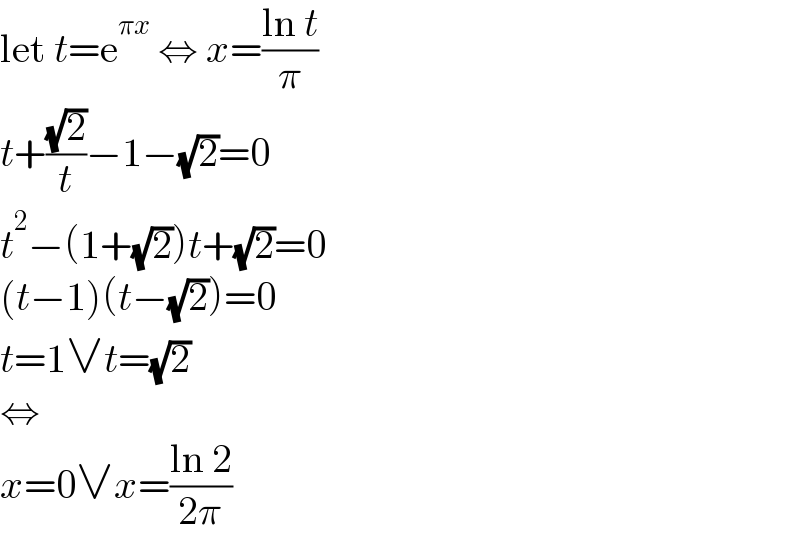
Question and Answers Forum
Question Number 151164 by puissant last updated on 18/Aug/21

Commented by puissant last updated on 18/Aug/21

Answered by MJS_new last updated on 18/Aug/21

| ||
Question and Answers Forum | ||
Question Number 151164 by puissant last updated on 18/Aug/21 | ||
 | ||
Commented by puissant last updated on 18/Aug/21 | ||
 | ||
Answered by MJS_new last updated on 18/Aug/21 | ||
 | ||
| ||